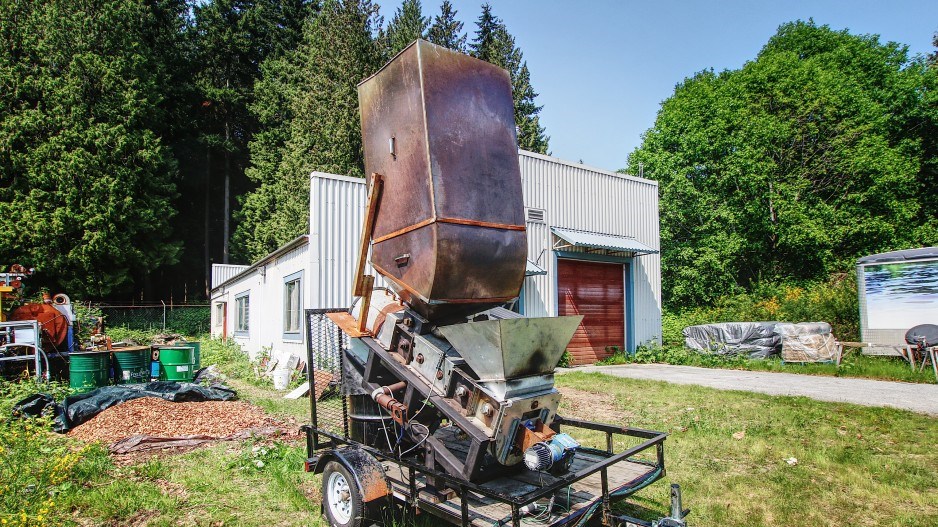Whether it is in India, where farmers burn crop stubble, or B.C., where loggers burn harvest slash, a lot of potential energy and nutrients are going up in smoke unnecessarily.
, a startup out of the University of British Columbia, is hoping to address this problem with a mobile bio-reactor that will allow farmers and loggers to turn their forestry or agricultural waste into useable products, like biochar.
Its mobile bio-reactor has earned the company a $5,000 award from Mitacs, which pairs industry with academic researchers.
Kevin Kung, a post-doctoral researcher at the Biomass and Bioenergy Research Group at the University of British Columbia, and Takachar CTO, helped develop the machine mainly to address a problem in Northern India, where farmers burn off their fields every year after harvest.
“At the harvest, the easiest way for farmers to clear their land is to set their fields on fire,” Kung said. “And a lot of that creates significant air pollution and smog.”
The bio-reactor could be used for forestry residues, as well, however.
“We actually have done a few trials with forestry slash, both in B.C. as well as California,” Kung said.
“Current technologies for turning biomass into usable products are large-scale and centralized, which means they only work well if the source is nearby,” Kung said. “Our 'Aha!' moment came when we realized we could circumvent the logistics issue by bringing the technology to the field or forest instead.”
Takachar currently has five machines undergoing field tests in India, California and B.C.
The machine uses pyrolysis to turn organic waste into products like biochar, which can be used as a soil nutrient in regions with acidic soil, while sequestering carbon.
“It’s a small-scale, low-cost portable system that can latch onto the back of a tractor or pickup truck and deploy in these rural, hard-to-access regions,” Kung said.




